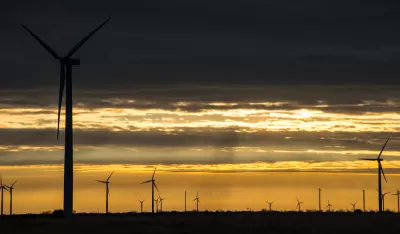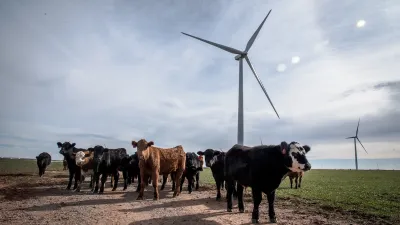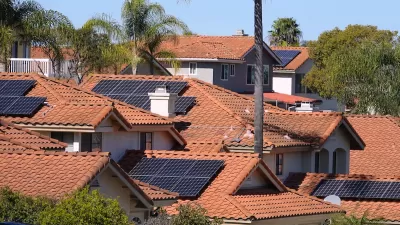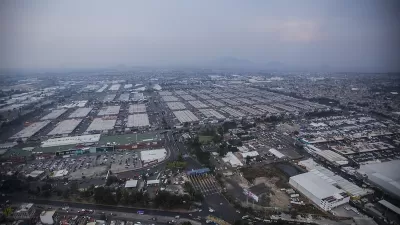Texas leads the country in wind energy production, but it, and other conservative states, continue to resist efforts to promote the switch to renewables.

"The states that are most deeply integrated into the existing fossil-fuel economy, either as producers or as consumers, tend also to be the places that are most resistant to, and separated from, the major demographic, cultural, and economic changes remaking 21st-century American life," writes Ronald Brownstein. "The majority of them rank near the bottom among the 50 states in the share of their residents who hold four-year college degrees, are foreign-born, or work in occupations tied to the new digital economy, according to census figures."
These states also take other socially conservative positions such as abortion restrictions, book bans, and limited LGBTQI rights. Besides highlighting America's cultural divide, this trend, according to Brownstein, "shows how difficult it will be to establish any consensus for national action to accelerate the shift from fossil fuels to clean energy sources, despite the mounting evidence that climate change threatens all regions of the country (and the world)."
Yet some of the most conservative states are also some of the nation's biggest clean energy producers, with Texas leading the country in renewable energy projects. Brownstein describes how political leaders often stand in the way of incentives that would boost the renewables economy and create jobs in their states.
"The bipartisan infrastructure bill that Biden signed last year included several provisions designed to channel jobs in the clean-energy economy toward places that would be hurt by diminished reliance on fossil fuels, such as coal communities," but the plan remains stalled in Congress.
Renewable energy has grown steadily as a source of power in the U.S. In December 2021, nearly 24 percent of electricity came from renewable sources, up from 19.4 percent in December 2020. Brownstein questions how long, given the economic realities of fossil fuel supplies and energy production, the transition to clean energy can remain a politically divisive issue.
FULL STORY: The Green-Energy Culture Wars in Red States

Alabama: Trump Terminates Settlements for Black Communities Harmed By Raw Sewage
Trump deemed the landmark civil rights agreement “illegal DEI and environmental justice policy.”

Planetizen Federal Action Tracker
A weekly monitor of how Trump’s orders and actions are impacting planners and planning in America.

The 120 Year Old Tiny Home Villages That Sheltered San Francisco’s Earthquake Refugees
More than a century ago, San Francisco mobilized to house thousands of residents displaced by the 1906 earthquake. Could their strategy offer a model for the present?

Housing Vouchers as a Key Piece of Houston’s Housing Strategy
The Houston Housing Authority supports 19,000 households through the housing voucher program.

Rural Population Grew Again in 2024
Americans continued to move to smaller towns and cities, resulting in a fourth straight year of growth in rural areas.

Safe Streets Grants: What to Know
This year’s round of Safe Streets for All grant criteria come with some changes.
Urban Design for Planners 1: Software Tools
This six-course series explores essential urban design concepts using open source software and equips planners with the tools they need to participate fully in the urban design process.
Planning for Universal Design
Learn the tools for implementing Universal Design in planning regulations.
Clanton & Associates, Inc.
Jessamine County Fiscal Court
Institute for Housing and Urban Development Studies (IHS)
City of Grandview
Harvard GSD Executive Education
Toledo-Lucas County Plan Commissions
Salt Lake City
NYU Wagner Graduate School of Public Service





























